In this LGBTQ+ Safety guide, we will introduce you to some of the most important things you should consider when traveling as an LGBTQ+ tourist. Furthermore, we will share some valuable links to make traveling safer and more enjoyable.
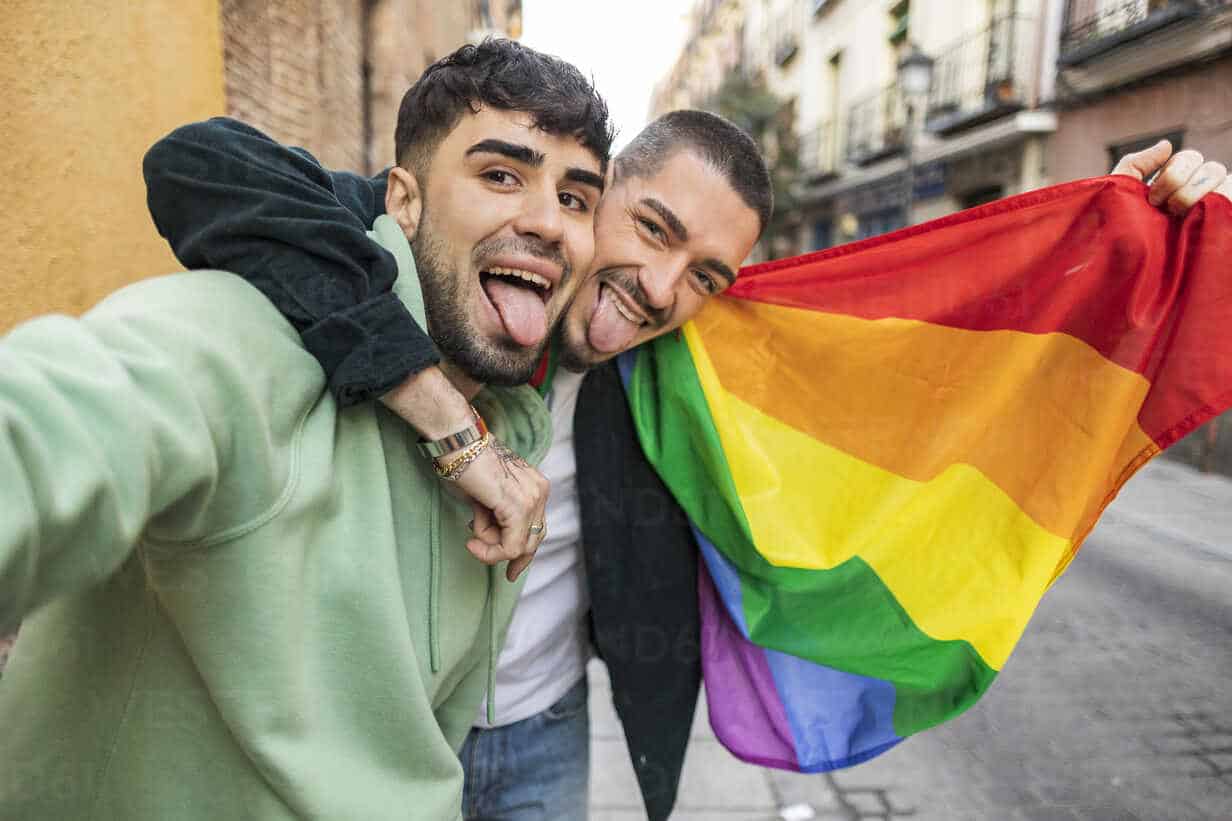
©Creator: Jose Carlos Ichiro
|
Credit: Westend61 GmbH
Copyright: © by Westend61 / Jose Carlos Ichiro, ALL RIGHTS RESERVED
Introduction to our LGBTQ+ Safety Guide
Traveling as an LGBTQ+ person isn’t much different than traveling for others, but there are specific concerns to consider. Discrimination and violence against LGBTQ+ people are still prevalent in many parts of the world, posing additional risks in unfamiliar places. It’s vital to understand the destination’s mindset towards the LGBTQ+ community to ensure a safe trip. Most business travel programs don’t consider LGBTQ+ travelers, and 95% conceal their orientation for safety. We have written this LGBTQ+ Safety Guide to give you advice and resources to help LGBTQ+ travelers feel more comfortable planning their trips.
Note: You might also be interested in our article about Equaldex.
Travel Safety Tips for LGBTQ+ Travelers
Evaluate your risks
Firstly, remember that not every LGBTQ+ traveler faces the same risk, and there is no universal advice. Consider your profile and the experience you want in your travels, and determine if a particular destination is right for you. You do not necessarily have to avoid a location. Still, you must know how to conduct yourself based on your destination’s laws and cultural climate.
Note: If you are interested in similar topics, we recommend reading our related guide about Discreet Travel: A European Guide for Gay Daters.
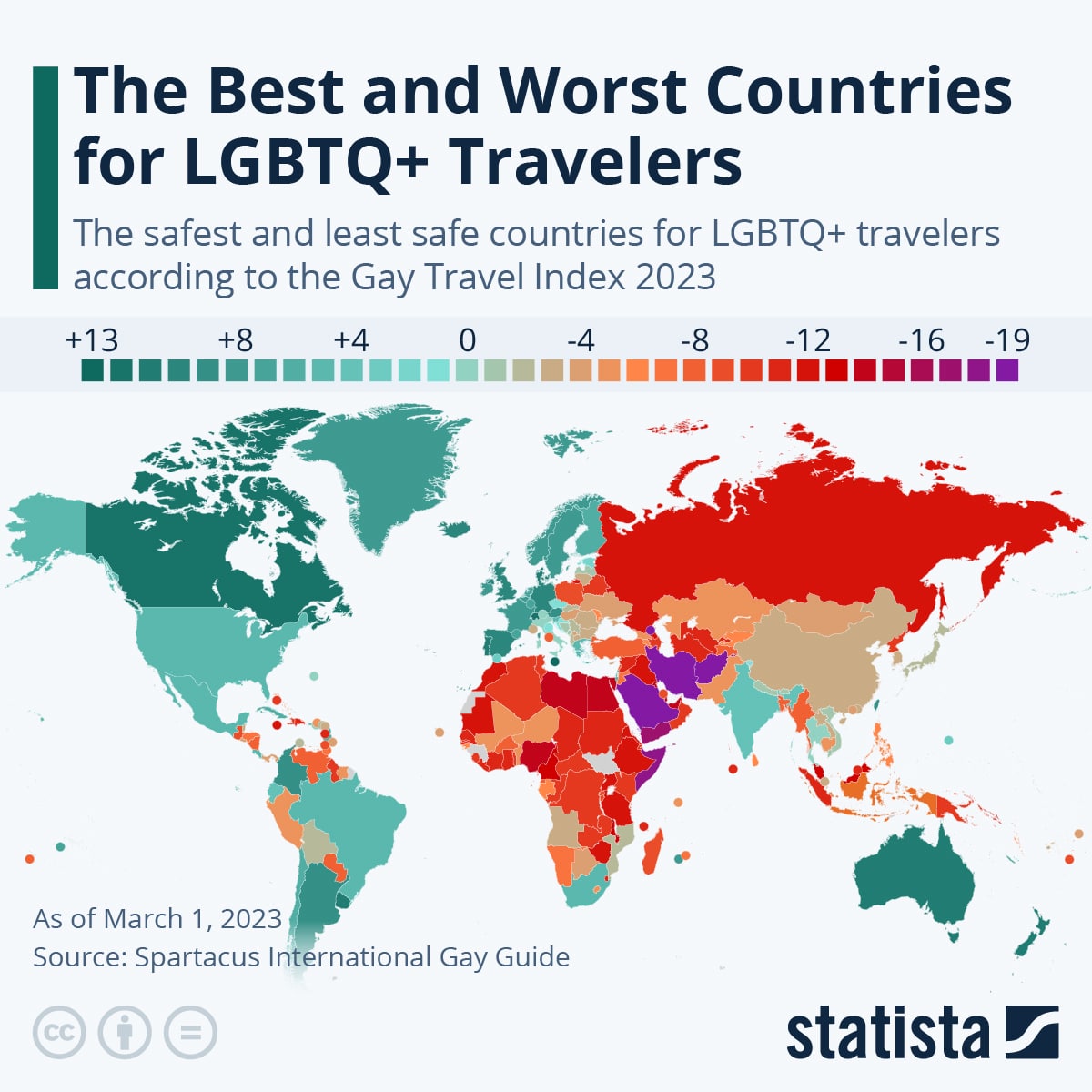
Choosing Your Destination
Firstly, we recommend researching the local LGBTQ+ policies and social attitudes before traveling. Secondly, take what you read for granted because individuals with unique identity-based perspectives thoughtfully write all travel articles. A black trans man will experience the world differently from a white lesbian from London. While exploring, remember that your identity and preferences may vary from the author’s; that’s why it is essential to seek out numerous sources of information.
Secondly, the first step is deciding if you are comfortable traveling to a destination where it is forbidden to be LGBTQ+. Ultimately, it’s up to you as a community member to decide what feels right.
Note: If you want to learn more, read our article about the safest European LGBT+ destinations.
Explore LGBTQ+ Rights Around the World
IGLTA and Destination Pride have partnered to create Pride flag visualizations that showcase the laws, rights, and social sentiment towards the LGBTQ+ community globally. Following local regulations and cultural norms is essential, even if you disagree with them. Personal beliefs cannot serve as a legal defense.
Note: you might also be interested in our article about the Safest countries for gay traveling.
Leave behind contact info.
During your travels, provide a trusted contact back home with your precise itinerary, including anyone you have planned to meet while on your trip. In an emergency, it is helpful if someone back home has contact information for hotels, flight numbers, and a general idea of planned events on your trip.
Bring paper copies
There are apps to hold digital copies, but you never know what might happen to your phone. Therefore, take paper copies of your passport, flight information, hotel confirmations, and other essential documents. Keep these documents safe, as they contain personal information.
LGBTQ+-Welcoming Accommodations
Even if you visit an LGBTQ-friendly destination, your acceptance level may differ from business to business. Most prominent hotel chains have LGBTQ+-affirming policies and are actively improving staff diversity training. However, some travelers may prefer companies owned by members of the LGBTQ+ community and specialize in providing accommodations to LGBTQ+ travelers. Therefore, regardless of your preference, you should begin your research by exploring reputable accommodation providers to ensure you stay in a hotel welcoming to the LGBTQ+ community.
Take medical protection
If you are traveling with medication, keep your medication in a separate bag in your carry-on. Keep all medicines in their original containers and carry an official note of medical authorization from your doctor. Check beforehand that your medications are legal to move into the country you are visiting. If you plan to be sexually active, you should bring protection with you. Not only that, but you should also carefully study the laws of the country of destination.
Considerations For Transgender and Non-Binary Travelers
Transgender and non-binary travelers may face challenges when departing or arriving at airports and entering countries, especially if their identification documents do not match their gender identity. To avoid these challenges, consider changing the gender designation on identity documents, obtaining a letter from a medical professional or therapist regarding medications associated with gender transition, or preparing a brief statement for officials. Harassment from locals is also a concern, so keep a low profile. Disclosing gender identity is a personal choice and may not always be safe.
Note: You might also be interested in our related article – Crafting Your Perfect Trip with AI Chat Prompts
Stay safe
When traveling to a new place, be aware of your surroundings and culture and avoid standing out as a tourist. It’s best to stay discreet even in LGBTQ-friendly places. If bullied, remove yourself and don’t confront the bully. If harassed by officials, remain calm and contact your diplomatic representative. If you become a victim of a crime, contact local authorities and your diplomatic representation.
Note: You might also be interested in our article about the Gay travel resources guide.
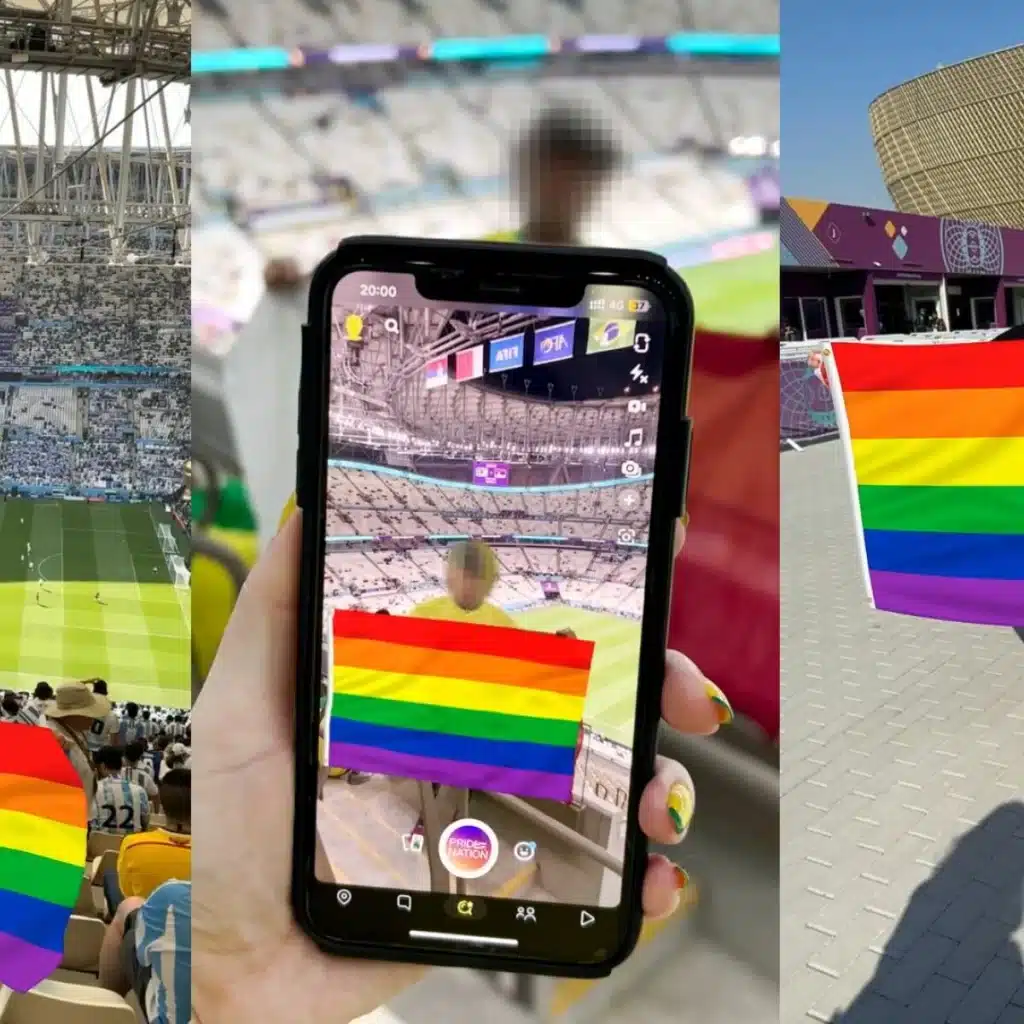
©Corner Magazine
Using LGBTQ+ Dating Apps & Social Media
Firstly, dating apps and social networks are excellent ways to connect with local LGBTQ+ people while traveling. You’ll be able to find the local hangouts and finest parties and understand the local culture from locals. Unfortunately, apps and social media have been used to target and entrap LGBTQ+ people in areas where it is illegal. So, if you choose to use these services in countries where you’re worried about your safety, consider downloading a VPN service onto your phone to make your connection private. While not foolproof, a VPN prevents government censorship in other countries.
Why take out travel insurance?
Travel insurance provides coverage for various incidents that may occur while you’re traveling. These incidents include canceling or cutting short your journey due to unforeseen circumstances, missed transportation, or delayed departure due to reasons beyond your control, medical and other emergencies, personal injury and death, lost, stolen, or damaged items such as baggage, passports, and money, and accidental damage or injury caused by you.
If you don’t have travel insurance and face any problems while traveling, you must pay for it out of pocket. Additionally, you may lose your money if you need to cancel your trip for any reason and need travel insurance. All of these scenarios could cost you thousands of pounds.
Helpful resources for LGBTQ+ travelers
Here are some valuable external links for you. However, to learn more, visit either our article about Gay resources or our Gay Resources site.
Database of LGBTQ+ rights by country
HIV-specific travel and residence restrictions
International LGBTQ+ Travel Association
International LGBTQ+ Travel Association travel guides
International LGBTQ+ Travel Association safety guide
The International Lesbian, Gay, Bisexual, Trans and Intersex Association
Take a look at

Main Travel Scams to Avoid
During our first trip to China, we fell victim to a scam. That’s when we saw how fragile tourists are
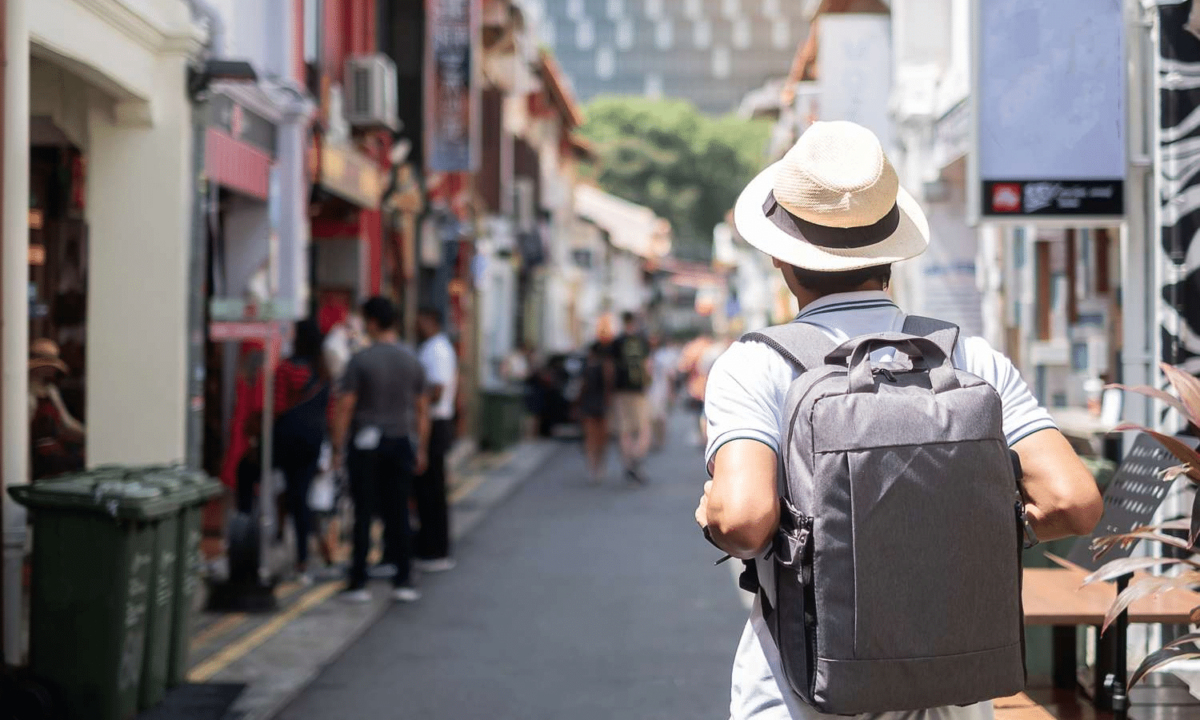
Our valuable tips for gay solo travelers
Gay solo traveling does not mean being alone on your vacations. That’s why we have prepared our valuable tips for
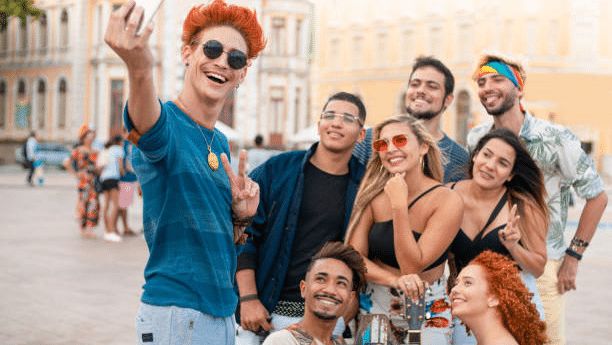
Useful Mobile Apps for every Gay Traveler
In this list of Useful mobile apps for a gay traveler, you’ll discover apps created to make life and traveling
References and sources:
LGBTQ+ SAFETY GUIDE
Photo credits:
Feature photo credits: Marc Bruxelle RF/Alamy

